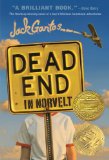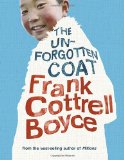Summary | Excerpt | Reviews | Beyond the book | Read-Alikes | Genres & Themes | Author Bio

When their teacher goes missing during an outing, eleven girls grapple with the aftermath in this haunting, exquisitely told psychological mystery.
The Vietnam War rages overseas, but back at home, in a year that begins with the hanging of one man and ends with the drowning of another, eleven schoolgirls embrace their own chilling history when their teacher abruptly goes missing on a field trip. Who was the mysterious poet they had met in the Garden? What actually happened in the seaside cave that day? And most important - who can they tell about it? In beautifully shimmering prose, Ursula Dubosarsky reveals how a single shared experience can alter the course of young lives forever. Part gripping thriller, part ethereal tale of innocence lost, The Golden Day is a poignant study of fear and friendship, and of what it takes to come of age with courage.
The Golden Day is deeply magical but also painfully real. With haunting, sparse language and a timeless style, Dubosarsky expertly explores a pivotal moment in these girls' lives. She does this by inhabiting all girls' points of views at once. I can't adequately explain the breathtaking tension, urgency and emotional resonance this technique creates. It is unique, highly inventive and it deeply works...continued
Full Review
(883 words)
This review is available to non-members for a limited time. For full access,
become a member today.
(Reviewed by Tamara Ellis Smith).
In her author's note in The Golden Day, Ursula Dubosarsky writes that Charles Blackman, an acclaimed Australian modernist painter, was a particularly keen influence on the novel: "[My] greatest debt is to Charles Blackman's many astonishing, lush depictions of schoolgirls – enchanting, disturbing, and endlessly evocative."
One of Blackwell's paintings, Floating Schoolgirl, was especially intriguing to Dubosarsky; it was during a visit to the National Gallery of Australia in Canberra where she first saw the painting, and it became the very first seed for The Golden Day. The painting is haunting and beautiful; it depicts a schoolgirl in a hat and uniform floating above a city, in what looks like the middle of the night.
Blackman's ...
This "beyond the book" feature is available to non-members for a limited time. Join today for full access.

If you liked The Golden Day, try these:

by Jack Gantos
Published 2013
A sly, sharp-edged narrative about a small western Pennsylvania town and a dead-funny depiction of growing up in a slightly off-kilter place where the past is present, the present is confusing, and the future is completely up in the air.

by Frank Cottrell Boyce
Published 2011
Often laugh-out-loud funny, this moving and simply told novella of two Mongolian brothers learning to fit in to a British school tugs at the heart - a unique story of immigration both fierce in its telling and magical in its characters.